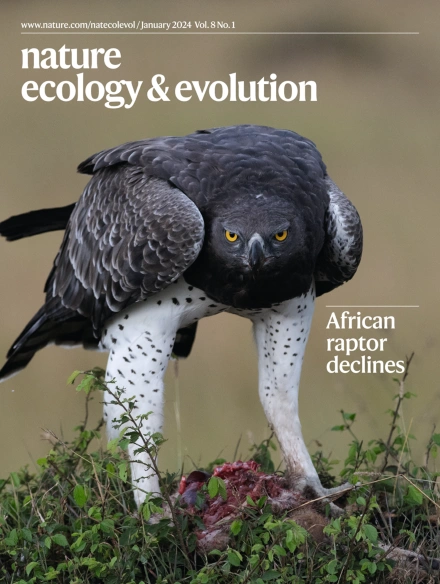Generative AI as a tool to accelerate the field of ecology
IF 13.9
1区 生物学
Q1 ECOLOGY
引用次数: 0
Abstract
The emergence of generative artificial intelligence (AI) models specializing in the generation of new data with the statistical patterns and properties of the data upon which the models were trained has profoundly influenced a range of academic disciplines, industry and public discourse. Combined with the vast amounts of diverse data now available to ecologists, from genetic sequences to remotely sensed animal tracks, generative AI presents enormous potential applications within ecology. Here we draw upon a range of fields to discuss unique potential applications in which generative AI could accelerate the field of ecology, including augmenting data-scarce datasets, extending observations of ecological patterns and increasing the accessibility of ecological data. We also highlight key challenges, risks and considerations when using generative AI within ecology, such as privacy risks, model biases and environmental effects. Ultimately, the future of generative AI in ecology lies in the development of robust interdisciplinary collaborations between ecologists and computer scientists. Such partnerships will be important for embedding ecological knowledge within AI, leading to more ecologically meaningful and relevant models. This will be critical for leveraging the power of generative AI to drive ecological insights into species across the globe. This Progress discusses potential applications of artificial intelligence models that generate new data and how they can be used to advance ecology research.

生成式人工智能作为加速生态领域的工具
生成式人工智能(AI)模型的出现,专门用于生成具有统计模式和模型所依据的数据属性的新数据,已深刻影响了一系列学科、行业和公共话语。结合生态学家现在可以获得的大量不同数据,从基因序列到遥感动物轨迹,生成人工智能在生态学中呈现出巨大的潜在应用。在这里,我们借鉴了一系列领域来讨论生成式人工智能可以加速生态学领域的独特潜在应用,包括增加数据稀缺数据集,扩展生态模式观察和增加生态数据的可访问性。我们还强调了在生态学中使用生成式人工智能时的主要挑战、风险和考虑因素,例如隐私风险、模型偏差和环境影响。最终,生态学中生成式人工智能的未来取决于生态学家和计算机科学家之间强有力的跨学科合作的发展。这种伙伴关系对于将生态知识嵌入人工智能非常重要,从而产生更有生态意义和相关的模型。这对于利用生成式人工智能的力量推动对全球物种的生态见解至关重要。
本文章由计算机程序翻译,如有差异,请以英文原文为准。
求助全文
约1分钟内获得全文
求助全文
来源期刊

Nature ecology & evolution
Agricultural and Biological Sciences-Ecology, Evolution, Behavior and Systematics
CiteScore
22.20
自引率
2.40%
发文量
282
期刊介绍:
Nature Ecology & Evolution is interested in the full spectrum of ecological and evolutionary biology, encompassing approaches at the molecular, organismal, population, community and ecosystem levels, as well as relevant parts of the social sciences. Nature Ecology & Evolution provides a place where all researchers and policymakers interested in all aspects of life's diversity can come together to learn about the most accomplished and significant advances in the field and to discuss topical issues. An online-only monthly journal, our broad scope ensures that the research published reaches the widest possible audience of scientists.
 求助内容:
求助内容: 应助结果提醒方式:
应助结果提醒方式:


